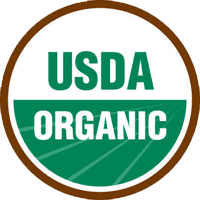 The US Department of Agriculture’s National Organic Program describes organic food this way:
The US Department of Agriculture’s National Organic Program describes organic food this way:Organic food is produced by farmers who emphasize the use of renewable resources and the conservation of soil and water to enhance environmental quality for future generations. Organic meat, poultry, eggs, and dairy products come from animals that are given no antibiotics or growth hormones. Organic food is produced without using most conventional pesticides; fertilizers made with synthetic ingredients or sewage sludge; bioengineering; or ionizing radiation. Before a product can be labeled “organic,” a Government-approved certifier inspects the farm where the food is grown to make sure the farmer is following all the rules necessary to meet USDA organic standards. Companies that handle or process organic food before it gets to your local supermarket or restaurant must be certified, too.
Simply put, organic is about what you won’t find in your food. It is produced without using pesticides, synthetic fertilizers, sewage sludge, genetically modified organisms (GMOs), or ionizing radiation. Animals products such as meat, poultry, eggs, and dairy products were not given antibiotics or growth hormones.
There are various classifications of organic consumer goods, such as “100% organic” and “Made with Organic Ingredients.” For more information on these classifications and how they are labeled along with information on the official USDA Organic logo see our section on Organic Labels.

No comments:
Post a Comment